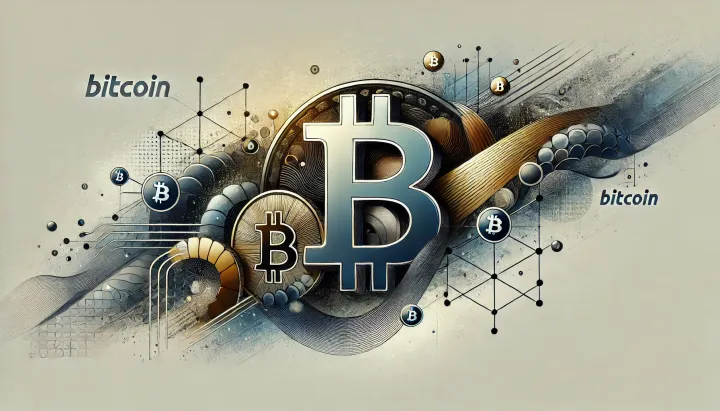Philosophy and Economic Reform in Bitcoin
On April 06, 2025, the Robin Seyr Podcast hosted guest Nelson Inno, who explained his transformative journey from speculative Bitcoin engagement to a philosophy-driven commitment emphasizing accessible education and economic reform.

- My 'briefing notes' summarize the content of podcast episodes; they do not reflect my own views.
- They contain (1) a summary of podcast content, (2) potential information gaps, and (3) some speculative views on wider Bitcoin implications.
- Pay attention to broadcast dates (I often summarize older episodes)
- Some episodes I summarize may be sponsored: don't trust, verify, if the information you are looking for is to be used for decision-making.
Summary
On April 06, 2025, the Robin Seyr Podcast hosted guest Nelson Inno, who explained his transformative journey from speculative Bitcoin engagement to a philosophy-driven commitment emphasizing accessible education and economic reform. Inno discusses innovative outreach strategies and Bitcoin’s potential to address informal debt and financial instability, particularly in developing regions.
Take-Home Messages
- Bitcoin Education: Accessible and philosophy-based outreach is essential for deepening understanding among non-experts.
- Orange Pilling: Simplified educational methods can effectively bridge the gap between initial curiosity and informed adoption.
- Economic Reform: Leveraging Bitcoin to address informal debt and systemic instability offers transformative potential for developing regions.
- Incentive Alignment: Redesigning incentive structures is crucial to align individual actions with the long-term health of the Bitcoin network.
- Resilience in Innovation: Embracing failure and integrating philosophical insights can drive sustained progress in the Bitcoin ecosystem.
Overview
Nelson Inno recounts his personal evolution from chasing quick profits to embracing a philosophy-infused approach to Bitcoin, citing influential works that reshaped his perspective. His narrative sets the stage for a deeper discussion on sustainable Bitcoin practices.
He introduces the concept of orange pilling as a method to simplify complex Bitcoin education for a broader audience. Inno emphasizes that relatable storytelling and accessible content are key to engaging those initially resistant to in-depth learning.
The conversation shifts to economic challenges in regions like El Salvador, where informal debt practices and financial instability prevail. Inno discusses how Bitcoin-based solutions, coupled with robust financial education, could offer a pathway to reform and stability.
Drawing on game theory and personal entrepreneurial experiences, Inno outlines the need for resilient incentive structures and policy collaboration. His insights highlight the importance of humility, continuous learning, and strategic communication to drive long-term Bitcoin adoption.
Stakeholder Perspectives
- Governments and regulators seek balanced integration of Bitcoin into existing financial systems while ensuring economic stability.
- Bitcoin educators advocate for accessible, philosophy-based learning to empower broader community participation.
- Entrepreneurs emphasize the importance of resilient incentive structures and learning from failure in innovative environments.
- Traditional financial institutions express concerns over decentralization and potential disruptions.
- The general public looks for clear, trustworthy narratives that demystify Bitcoin’s benefits.
Implications and Future Outlook
The episode implies that a shift from speculative behavior to a philosophy-driven commitment could stabilize the Bitcoin ecosystem. Emphasizing accessible education and clear communication may bridge critical knowledge gaps. Such shifts are likely to influence both grassroots participation and institutional policies.
Inno’s insights on addressing informal debt and financial instability suggest that Bitcoin can serve as a tool for economic reform in vulnerable regions. Collaborative policy frameworks and tailored outreach strategies will be vital to harnessing this potential. The discussion underscores an opportunity to reframe Bitcoin as a catalyst for inclusive financial innovation.
By redesigning rewards and penalties within Bitcoin using game theory, the network can encourage behaviors that benefit everyone, rather than just short-term gains. This means setting up systems where actions like volunteering, educating others, and supporting long-term stability are rewarded, helping to prevent behaviors that could harm the ecosystem. Clear, strategic communication of these incentive models, combined with robust education, ensures that community members understand how their contributions strengthen the overall network and promote sustainable adoption.
Some Key Information Gaps
- How can educational strategies be optimized to engage non-experts who are initially resistant to in-depth Bitcoin content? This question is vital because effective education is the foundation for broader Bitcoin adoption and can bridge the existing knowledge gap.
- What factors influence the shift from short-term speculative behavior to long-term philosophical engagement in Bitcoin communities? This inquiry addresses the transformative mindset change necessary for sustainable adoption and long-term ecosystem health.
- How can Bitcoin-based solutions be structured to address informal debt instruments and economic instability in developing regions? This question is crucial for leveraging Bitcoin to reform financial practices and stabilize economies facing systemic vulnerabilities.
- How can incentive structures be redesigned to align individual behavior with sustainable Bitcoin network growth? Refining these structures is essential for mitigating misaligned incentives and ensuring a balanced, resilient network.
- What communication strategies are most effective in conveying Bitcoin's value proposition without inciting resistance? Clear, effective messaging is key to building public trust and promoting informed, long-term adoption.
Broader Implications for Bitcoin
Economic Stability and Reform
Bitcoin’s potential to address informal debt and economic instability can drive significant systemic reform. By integrating transparent financial practices, Bitcoin may help stabilize economies facing entrenched fiscal challenges. This could lead to more inclusive and resilient economic frameworks in developing regions.
Educational Transformation
Accessible, philosophy-based Bitcoin education can demystify complex financial concepts for a broader audience. This transformation may empower individuals to make informed decisions and foster long-term adoption. Enhanced education strategies could bridge critical knowledge gaps and stimulate widespread engagement.
Incentive Structures and Governance
Redesigning incentive mechanisms based on game theory could realign individual behaviors with collective network health. Such structural changes would support sustainable growth and mitigate the risks of misaligned rewards. Robust governance models could emerge, fostering collaboration between innovators, regulators, and educators.
Community Resilience and Innovation
Embracing failure as a learning tool and integrating philosophical insights can strengthen community resilience. A more adaptive and responsive Bitcoin ecosystem may evolve from continuous, experience-driven innovation. This collective resilience will be critical in navigating future challenges and harnessing emerging opportunities.



Comments ()